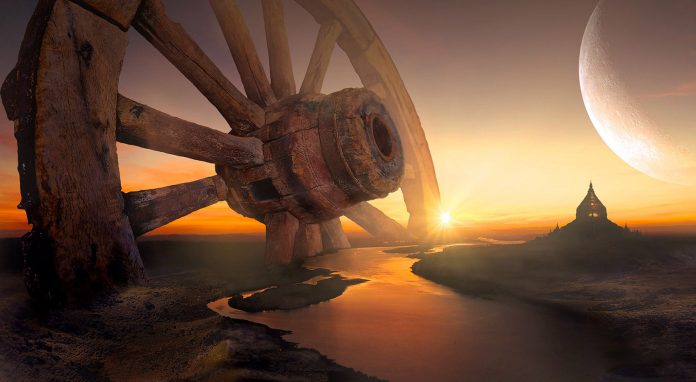
In a post on Writers in the Storm, Joseph Lallo tackles worldbuilding for science fiction novels, which can be a lot of fun while also presenting pitfalls. “Anyone who has consumed more than a few pieces of sci-fi literature can tell you that the limitless potential of a sci-fi setting can quickly spiral out of control if care isn’t taken to craft it with depth and consistency,” Lallo writes.
Before you start worldbuilding, you should first decide if your novel will be hard SF or soft. Lallo identifies the benefits of hard, science-based SF:
- The realism makes the world familiar for your readers
- A lot of your worldbuilding can come from textbooks
But there are weaknesses:
- There’s lots of homework, because…
- It will be noticeable if you get the science wrong
- Your story could become dated, because real-world tech surpasses it or because your base technology is abandoned
Lallo also discusses the pros and cons of soft SF. The pros:
- You can defy physics with warp drives and unobtainium
- Your playground is bound only by your imagination
The cons:
- You still need rules for your story world
- Physics-defying technology or powers can make it harder to create tension
“If you are planning hard sci-fi, do your research, and craft a plot that can be exciting and attainable within the parameters we all live in today,” Lallo says. “If you’re doing soft sci-fi, pick a handful of limitations you’re hoping to break, define the means that those limits are broken, and stick to them.”
Regardless of your direction, you’ll be spending a lot of time creating a culture. “When you do, keep in mind that a culture should be a whole culture, not just the convenient chunk of one that fits the shape of the story beat,” Lallo says. “Sci-fi is littered with single-purpose alien races, whole planets or empires defined entirely, exclusively, and coincidentally by the exact assortment of traits necessary to get your story across the finish line.” Instead, consider some aspects of your new culture that aren’t key to your plot. Drop in cultural tidbits to make your new culture fully established and well-rounded.
While building that culture, you should also consider your philosophy: are you cynical or optimistic? “Optimistic sci-fi often posits a world where the greatest challenges of existence have been overcome,” Lallo says. “Cynical philosophies thrive on dystopias.” You don’t need to pick one or the other. In fact, a blend of the two could make for a richer story. “When choosing to focus more closely on the extremes, just remember that an optimistic world must have enough flaws to be in need of saving, and a cynical world must have enough virtues to be worth saving,” Lallo writes.











